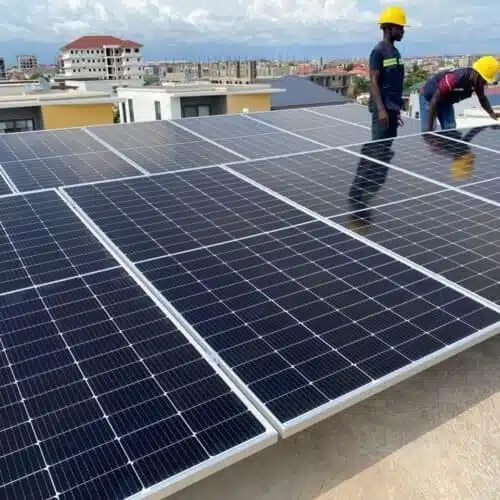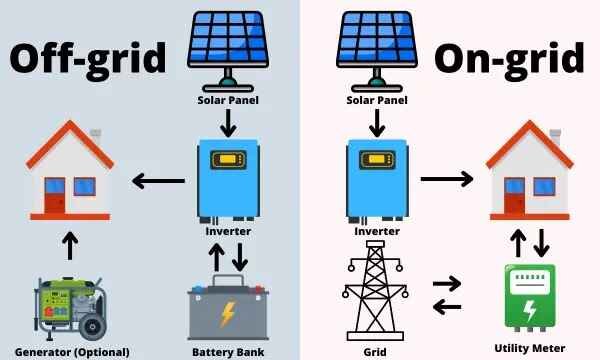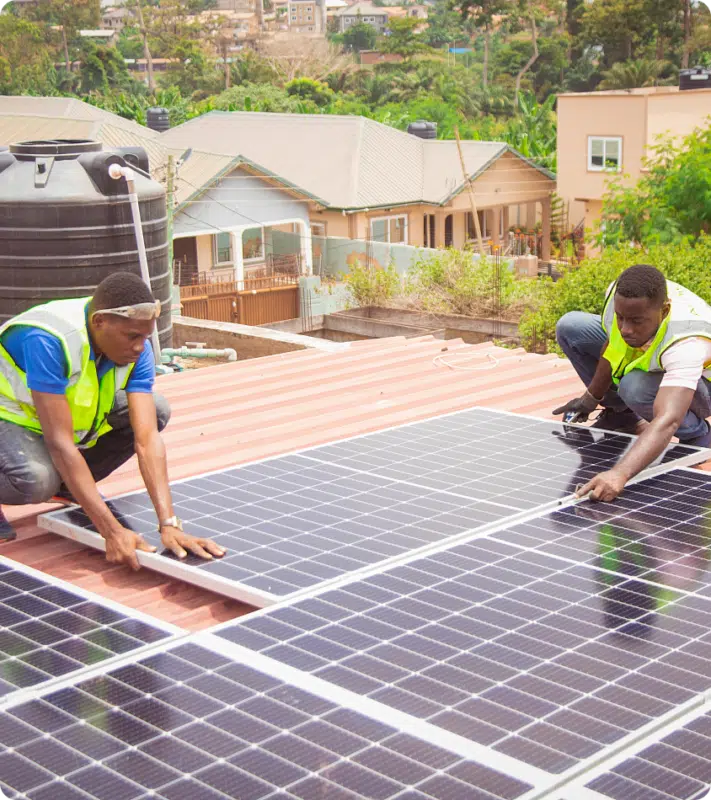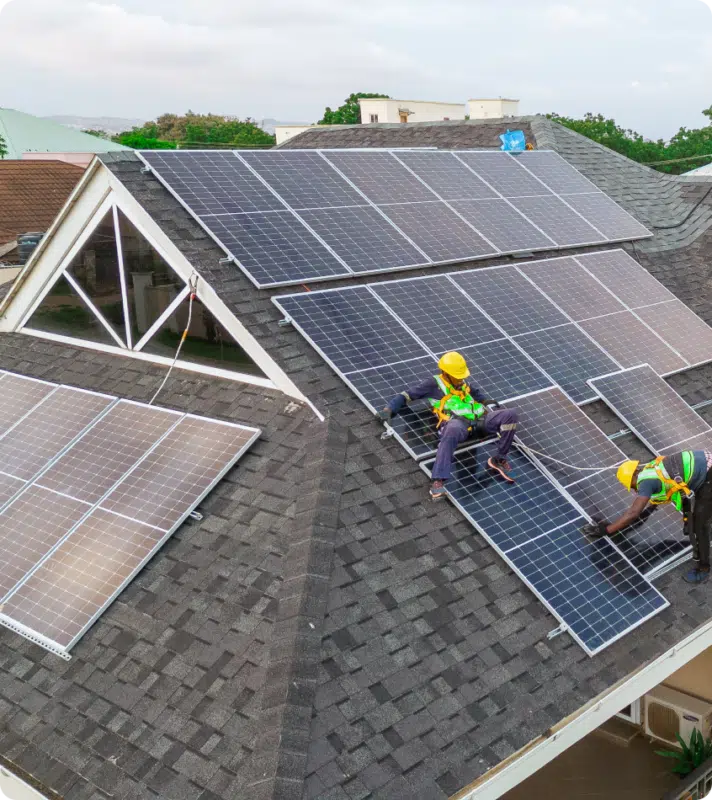Blogs
Future of Solar Battery Storage: Revolutionizing Renewable Energy

Future of Solar battery storage is evolving rapidly. It’s transforming how we use solar energy.
The future holds exciting possibilities for this technology. As the world shifts towards renewable energy, solar battery storage plays a vital role. It’s not just about storing energy; it’s about making solar power more reliable and accessible. Innovations in solar batteries promise to improve efficiency, capacity, and cost-effectiveness.
These advancements will make solar energy a more viable option for homes and businesses alike. Understanding the future of solar battery storage helps us see the potential for a greener, more sustainable world. Let’s explore what lies ahead in this dynamic field and how it can impact our energy landscape.
Advancements In Solar Battery Storage
Solar battery storage is evolving rapidly. These advancements are making solar power more efficient and accessible. With new technologies and efficiency improvements, solar energy storage has become more reliable. This section will explore the latest developments in the field.
New Technologies
Researchers are developing new battery types. Solid-state batteries are one of these innovations. They use solid electrolytes instead of liquid ones. This change increases safety and energy density. Another advancement is lithium-sulfur batteries. They offer higher storage capacity at a lower cost. Flow batteries are also gaining attention. They store energy in liquid solutions, which makes them scalable and flexible.
Efficiency Improvements
Modern batteries are becoming more efficient. Improved energy management systems help optimize storage. These systems use smart algorithms to control energy flow. They ensure minimal energy loss. Enhanced battery materials also contribute to efficiency. For instance, silicon anodes can store more energy than traditional graphite ones. Better thermal management systems keep batteries cool. This reduces wear and tear, extending battery life.
Impact On Renewable Energy
The future of solar battery storage is bright and promising. It impacts renewable energy significantly, making it more reliable and efficient. Solar battery storage plays a crucial role in the renewable energy landscape. It helps store excess solar energy for later use, ensuring continuous power supply. This technology addresses key challenges of renewable energy, such as intermittent generation and dependency on weather conditions.
Energy Independence
Solar battery storage promotes energy independence. Homeowners and businesses can generate and store their own power. This reduces reliance on the grid and traditional energy sources. It allows users to produce and use solar energy at their convenience. Energy independence leads to lower energy bills and greater control over energy usage.
Grid Stability
Solar battery storage enhances grid stability. It helps balance energy supply and demand. Stored solar energy can be fed back into the grid during peak hours. This supports the grid and prevents overloads. It minimizes power outages and ensures a steady power supply. Grid stability is essential for a reliable energy infrastructure.
Cost Considerations
When exploring the future of solar battery storage, one of the key aspects that often comes to mind is the cost. How much will it set you back initially, and what can you expect in terms of savings over time? Let’s break down the cost considerations into two main components: initial investment and long-term savings.
Initial Investment
The initial investment in solar battery storage can be substantial. You’re not just paying for the batteries themselves, but also for installation, inverters, and potentially other upgrades to your existing solar system. This upfront cost can be daunting, but it’s important to consider the long-term benefits.
When I installed my solar battery storage system, I was initially hesitant due to the price tag. However, I quickly realized that many providers offer financing options, making it easier to manage the cost over time. Have you checked if any local programs can help you lower your initial costs?
Long-term Savings
Once the system is up and running, the long-term savings start to roll in. Solar battery storage allows you to store excess energy generated during the day and use it during peak hours or at night. This means you can reduce your reliance on the grid and save on your energy bills.
I noticed a drastic reduction in my electricity bills within the first few months. The ability to use stored solar energy during high-demand periods meant I was less affected by peak pricing. Over time, these savings can add up, offsetting the initial investment and even leading to a positive return.
But it’s not just about the money saved. Consider the peace of mind that comes with energy independence. If you’ve ever experienced a power outage, you know how disruptive it can be. With solar battery storage, you have a reliable backup, ensuring your home stays powered even when the grid goes down. Can you put a price on that kind of security?
In conclusion, while the initial investment in solar battery storage can be significant, the long-term savings and benefits can make it a worthwhile consideration. Have you thought about how solar battery storage could fit into your energy strategy?
Environmental Benefits
The future of solar battery storage promises significant environmental benefits. As the world shifts towards renewable energy, solar batteries play a crucial role. They store energy from the sun, which can be used when needed. This reduces reliance on fossil fuels. Let’s explore the key environmental benefits further.
Reduced Emissions
Solar battery storage helps cut greenhouse gas emissions. Traditional energy sources, like coal and natural gas, emit harmful gases. Solar energy is clean and does not produce emissions. Using stored solar energy means less carbon dioxide in the air. This helps fight climate change and improves air quality.
Sustainable Practices
Solar battery storage encourages sustainable practices. Renewable energy sources, like solar, are endless. They do not deplete natural resources. Solar batteries store excess energy. This energy can be used at night or on cloudy days. This makes solar energy reliable and sustainable.
Sustainable energy practices help preserve the environment. They reduce the need for mining and drilling. These activities harm ecosystems and wildlife. By using solar batteries, we support a healthier planet. This leads to a better future for all living beings.
Challenges And Solutions
Solar battery storage faces challenges like high costs and limited lifespan. Advancements in technology and production methods offer promising solutions. This can make solar energy more reliable and efficient.
The future of solar battery storage is bright, but it comes with its own set of challenges and solutions. As we strive to harness the power of the sun more efficiently, we need to address certain limitations and barriers that stand in our way. Let’s delve into these challenges and explore the potential solutions to pave the way for a more sustainable future.
Material Limitations
One of the significant hurdles in solar battery storage is the material used in batteries. Traditional lithium-ion batteries, while effective, have their drawbacks. They rely on finite resources like lithium and cobalt, which are not only expensive but also pose environmental and ethical concerns. Have you ever wondered about the environmental impact of mining these materials? Mining activities can lead to deforestation, soil erosion, and water contamination. This is where alternative materials come into play.
Researchers are exploring the use of abundant and eco-friendly materials like sodium and magnesium. These alternatives could potentially reduce costs and minimize environmental damage. But how soon can we expect these alternatives to be widely available? The transition isn’t instantaneous. It requires rigorous testing, development, and scaling. However, the progress in this area is promising, and it could revolutionize the solar battery industry.
Technological Barriers
Technological barriers also pose a challenge to the advancement of solar battery storage. One of the primary issues is the energy density of current batteries. Higher energy density means more energy storage in a smaller space, which is crucial for efficient storage solutions. Have you ever faced a situation where your solar system couldn’t store enough energy for cloudy days? This is a common problem due to low energy density.
Researchers are working on enhancing the energy density of batteries through innovations like solid-state batteries and advanced electrolytes. Another technological challenge is the battery lifespan. Over time, batteries degrade, reducing their efficiency and storage capacity. Imagine having to replace your solar battery every few years—it’s not only inconvenient but also costly. To tackle this, scientists are developing batteries with longer lifespans and enhanced durability.

This brings us to an important question: What can you do as a consumer? Staying informed about these advancements and opting for the latest technology can make a significant difference. Investing in batteries with better energy density and longer lifespans can provide you with a more reliable and cost-effective solar storage solution.
In conclusion, addressing the material limitations and technological barriers in solar battery storage is crucial for a sustainable future. By staying informed and supporting innovations, you can contribute to a greener planet while enjoying the benefits of efficient solar energy storage. Are you ready to embrace the future of solar battery storage? The journey might be challenging, but the solutions are within our reach.
Market Trends
The future of solar battery storage looks promising with dynamic market trends. These trends show significant growth and development in the industry. As solar energy becomes more popular, the need for efficient storage solutions increases. This demand drives innovation and competition among industry leaders.
Growing Demand
The demand for solar battery storage systems is growing rapidly. More households and businesses are adopting solar energy. They seek reliable storage solutions to store excess energy. This trend is fueled by the desire to reduce energy bills and carbon footprints.
This further boosts the demand for solar battery storage. People want to ensure they have power even during outages. Hence, the interest in efficient battery storage solutions rises.
Industry Leaders
Several companies lead the solar battery storage market. Tesla, for instance, is a well-known name in this space. Their Powerwall product is popular among consumers. It offers reliable and efficient energy storage solutions.
Other key players include LG Chem and Sonnen. These companies provide advanced battery storage systems. They focus on innovation and improving energy storage efficiency. This competition benefits consumers with better products and prices.
Industry leaders continue to invest in research and development. They aim to create more efficient and cost-effective solutions. This drives the market forward and supports the growing demand for solar battery storage.
Regulations
Regulations ensure that solar battery storage systems are safe and efficient. These standards cover various aspects, from battery life to environmental impact. Adhering to these regulations ensures reliable and sustainable products.
Regulations also address the integration of solar batteries with the power grid. They define how stored energy can be used or shared. Clear rules help in maintaining a stable and balanced power supply. This integration is essential for the widespread adoption of solar technology.
Future Predictions
The future of solar battery storage looks bright. Experts predict significant advancements and broader adoption worldwide. These predictions promise a more sustainable and energy-efficient future.
Innovation Trajectories
Solar battery technology is evolving rapidly. Researchers are focusing on improving efficiency and longevity. They are also working on making batteries more affordable.
New materials, like solid-state batteries, are emerging. These materials offer better performance and safety. Such innovations could make solar energy storage more reliable and widespread.
Another exciting development is the integration of smart technology. Smart batteries can optimize energy use and storage. They can communicate with the grid, making energy management more efficient.
Global Adoption
Countries worldwide are embracing solar energy. This support is driving global adoption.
Developing nations are also investing in solar technology. They see it as a way to provide reliable power to remote areas. Solar batteries can help bridge the energy gap in these regions.
Businesses and homeowners are recognizing the benefits too. They are adopting solar batteries to reduce energy costs. This trend is expected to grow as technology becomes more accessible.
Overall, the future of solar battery storage is promising. Innovations and global adoption will shape a sustainable energy future.
Frequently Asked Questions
What Will Be The Future Of A Battery Storage System?
The future of battery storage systems looks promising with advancements in technology, greater efficiency, and lower costs. Increased adoption in renewable energy and electric vehicles will drive growth.
What Is The Forecast For Solar Batteries?
The forecast for solar batteries is promising. Demand for renewable energy sources is driving growth. Technological advancements are improving efficiency and affordability. The market is expected to expand significantly.
What Is The Battery Storage Forecast For 2030?
The battery storage forecast for 2030 predicts significant growth, reaching approximately 1,095 gigawatt-hours globally. Rapid advancements in technology and decreasing costs drive this increase.
Is Solar Battery Technology Improving?
Yes, solar battery technology is improving rapidly. Advances in efficiency, capacity, and lifespan are making them more reliable and affordable.
Conclusion
Solar battery storage will shape our future energy solutions. It offers cleaner and more reliable power. Costs are dropping, making it accessible for everyone. Innovations continue to improve efficiency. Investing now brings long-term benefits. Solar energy reduces carbon footprint. It supports a sustainable planet. Communities and businesses will see growth. Embrace solar battery storage today. It’s a smart choice for the future.






























